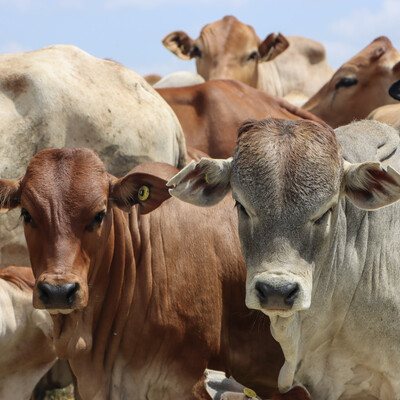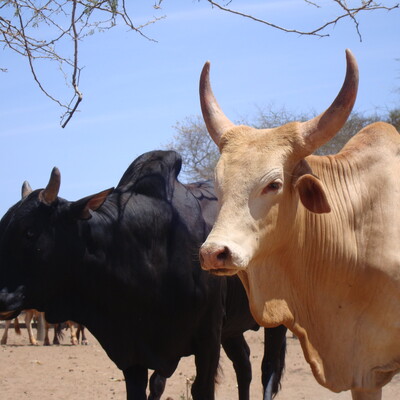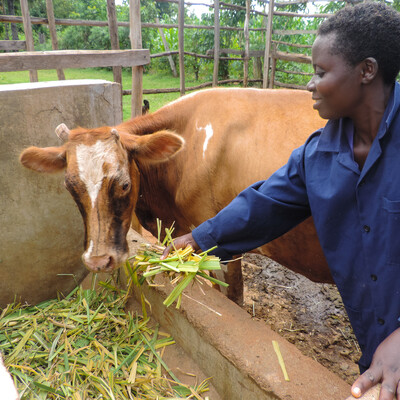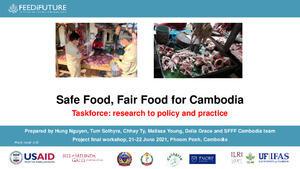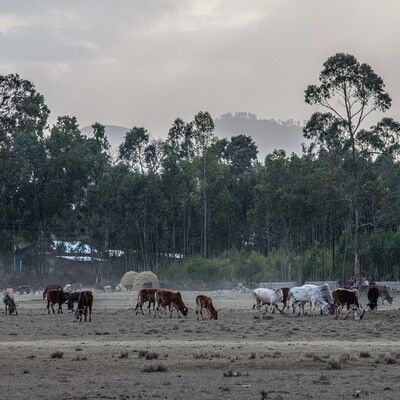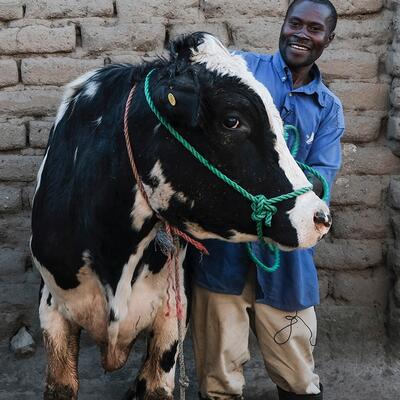

Insights from high-impact training on climate-smart livestock systems
Posted on
The importance of climate-smart livestock systems
Balancing the increasing global demand for animal products with the necessity to reduce greenhouse gas (GHG) emissions and improve climate resilience is essential. Livestock contribute to 15-18% of global emissions and occupy nearly 20% of the world’s ice-free land, impacting climate change and biodiversity. In Africa, where livestock support millions of smallholder farmers and pastoralists, these challenges are even more pronounced due to its critical role in food security and poverty reduction.
Climate-smart livestock (CSL) systems integrate productivity, adaptation and mitigation strategies to improve resilience while lowering emissions. These systems help combat land degradation, water scarcity and socio-economic inequality, contributing to both local and global climate goals.
The high-impact training on climate-smart livestock systems
From 2-6 December 2024, the International Livestock Research Institute (ILRI) hosted a training program to strengthen the capacity of World Bank operational teams and project implementation units (PIUs) in designing and implementing CSL investment projects. This initiative was part of the Accelerating Impacts of CGIAR Climate Research for Africa (AICCRA) program, the CGIAR Livestock and Climate Initiative, and the CGIAR Initiative on Low-Emission Food Systems.
CGIAR scientists, including Anthony Whitbread, ILRI Program Leader for Livestock, Climate and Environment, and Loraine Ronchi, Science, Technology and Innovation Global Lead at the World Bank, led sessions and shared valuable insights and tools.
Organized under the Livestock in Food Systems (LFS) initiative of the World Bank’s Food Systems 2030 program, the training convened experts and participants from the World Bank, PIUs, and LFS grant recipients. The event blended presentations, hands-on exercises, field visits and discussions to explore sustainable livestock solutions aligned with climate goals.
Why this training was important
The livestock sector plays a vital role in food security, livelihoods and economic development, particularly in low- and middle-income countries, where it accounts for about 30% of agricultural output. However, it also has significant environmental impacts, contributing to GHG emissions and affecting ecosystems.
The World Bank is committed to sustainable livestock development, emphasizing productivity, resilience, and mitigation. Operationalizing these principles requires equipping teams with the right knowledge and tools.
Key highlights
Day 1: Foundations of climate-smart livestock
Participants explored CSL practices that improve productivity, enhance adaptation, and facilitate mitigation efforts. Case studies highlighted included Ethiopia's Lowlands Livelihood Resilience Project and innovations from the Africa RISING program. The discussions also focused on the role of digital technologies, such as weather-informed advisory services and digital twins, in scaling up CSL solutions.
Day 2: GHG Accounting and Mazingira Centre visit
Sessions covered GHG mitigation strategies, emissions accounting, and tools like GLEAM (Global Livestock Environmental Assessment Model). Practical exercises with GLEAM and EX-ACT helped participants assess sustainability interventions. The day concluded with a visit to ILRI’s Mazingira Centre, where participants gained insights into advanced GHG measurement techniques.

Day 3: Mitigation economics and resilience
Participants learned about Marginal Abatement Cost Curves (MACCs) to evaluate the economic viability of mitigation strategies. They explored financial mechanisms for CSL projects and resilience-building approaches to enhance livestock systems’ ability to withstand climate shocks.
Day 4: Project design and implementation challenges
Teams applied their learning to real-world challenges, collaborating in breakout groups to develop CSL project solutions and next steps.
Day 5: Field visit to ILRI's Kapiti Research Station
A visit to ILRI’s Kapiti Research Station and Wildlife Conservancy, a 13,000-hectare semi-arid research site, showcased innovative practices in pasture management, emissions monitoring, animal health and integrating wildlife with livestock.

Key takeaways
The training provided participants with a thorough understanding of CSL principles, emphasizing the significance of sustainable practices in reducing GHG emissions while maintaining productivity. Participants gained practical expertise in utilizing key emissions accounting and monitoring tools, such as GHG calculators and data recording software, to accurately assess and manage carbon footprints in livestock operations. Additionally, they developed skills to effectively integrate productivity enhancement, resilience building, and climate change mitigation approaches within livestock systems, ensuring sustainable growth and adaptability to changing environmental conditions.
Furthermore, the training equipped participants with the ability to design and implement projects that align with climate action goals and specific corporate commitments, enabling projects and programs to meet their targets. Lastly, attendees gained access to an experienced network of professionals from various sectors, fostering ongoing collaboration, knowledge-sharing, and the exchange of best practices to address challenges in climate-smart agriculture.
This training was crucial in mainstreaming sustainable livestock practices within the World Bank’s operations. By equipping teams with essential knowledge and tools, it supported efforts to align livestock systems with climate and development goals. The LFS initiative will continue driving sustainable livestock investments, shaping more resilient and equitable food systems.

For more information on the training, please read the full report here.
You may also like

Opinion and analysis
Sustainable manure management in Uganda requires an enabling policy and legal framework: a call to action!

ILRI News
ILRI introduces the Livestock and Climate Solutions Hub at SAADC 2025 to address climate challenges in livestock systems
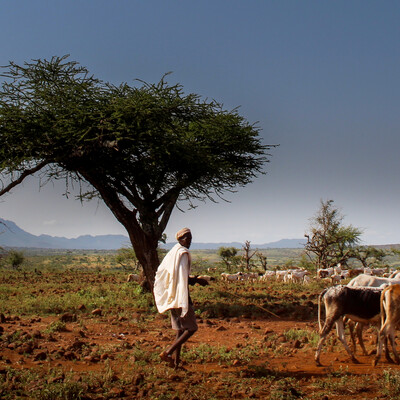
ILRI News
When policy meets pasture: Farmers and scientists joining forces to shape a fair climate future
Related Publications
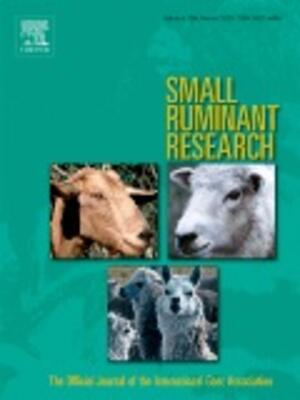
Systematic review on the impacts of community-based sheep breeding programs on animal productivity, food security, women’s empowerment, and identification of interventions for climate-smart systems under the extensive production system in Ethiopia
- Tesfa, Assemu
- Taye, Mengistie
- Haile, Aynalem
- Nigussie, Zerihun
- Najjar, Dina
- Mekuriaw, Shigdaf
- Dijk, Suzanne V
- Wassie, Shimels E
- Wilkes, Andreas
- Solomon, Dawit
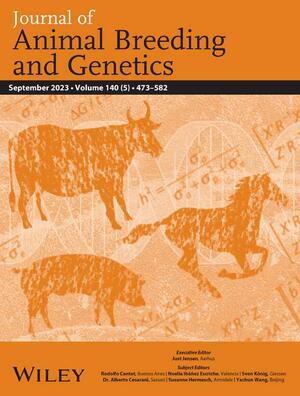
Genetic relationships among resilience, fertility and milk production traits in crossbred dairy cows performing in sub-Saharan Africa
- Oloo, Richard Dooso
- Mrode, Raphael A.
- Ekine-Dzivenu, Chinyere C.
- Ojango, Julie M.K.
- Bennewitz, J.
- Gebreyohanes, Gebregziabher
- Okeyo Mwai, Ally
- Chagunda, M.G.G.

The impact of heat stress on growth and resilience phenotypes of sheep raised in a semi-arid environment of sub-Saharan Africa
- Oyieng, Edwin P.
- Ojango, Julie M.K.
- Gauly, M.
- Ekine-Dzivenu, Chinyere C.
- Mrode, Raphael A.
- Clark, E.L.
- Dooso, Richard
- König, S.
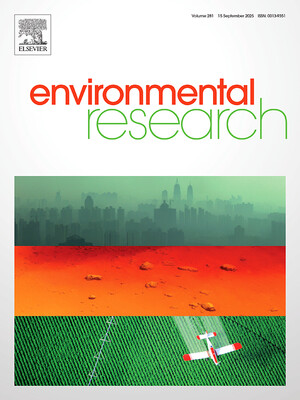
Ambient environmental conditions and active outdoor play in the context of climate change: A systematic review and meta-synthesis
- Lee, E.-Y.
- Park, S.
- Kim, Y.-B.
- Liu, H.
- Mistry, P.
- Nguyen, K.
- Oh, Y.
- James, M.E.
- Lam, Steven
- Lannoy, L. de
- Larouche, R.
- Manyanga, T.
- Morrison, S.A.
- Prince, S.A.
- Ross-White, A.
- Vanderloo, L.M.
- Wachira, L.-J.
- Tremblay, M.S.






